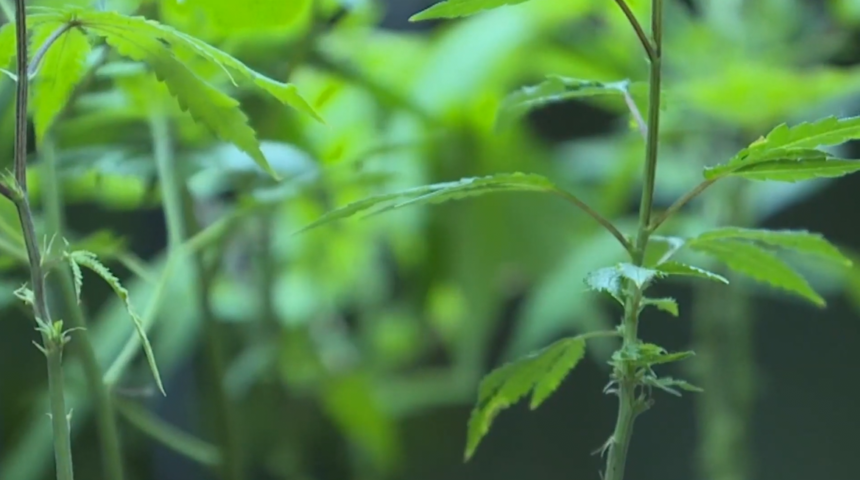Central Coast immigration experts advising migrants against working in pot farms

Immigration experts are advising migrants against working in pot farms because it could jeopardize any paths to citizenship. Officials explain while the plant is legal in California, it remains illegal at the federal level.
Central Coast farm workers like Alicia (who asked us not to use her last name), are not taking any chances.
"I came here in '97, and have been filing for permanent residence through my dad," she shared in Spanish.
Alicia says she's finally about to obtain a green card, but was worried her former job could change things.
"I was working at a nursery, but took some time off for maternity leave," she said.
“[She] now is looking to return to work but started hearing that they were looking to start planting marijuana, so she came and asked us if it would be ok to go back to work," said Susana Covarrubias of La Hermandad Mexicana, a nonprofit immigration service.
Covarrubias advised her against going back “because it could have immigration consequences.”
In a statement sent to our newsroom, U.S Citizenship and Immigration Services (USCIS) explained cannabis remains illegal under federal law.
“U.S. Citizenship and Immigration Services is required to adjudicate cases based on federal law. Individuals who commit federal controlled substance violations face potential immigration consequences under the immigration and nationality act (INA), which applies to all foreign nationals regardless of the state or jurisdiction in which they reside.
“Marijuana remains illegal under federal law as a Schedule I controlled substance regardless of any actions to decriminalize its possession, use, or sale at the state and local level. Federal law does not recognize the decriminalization of marijuana for any purpose, even in places where state or local law does," a spokesperson said.
Alicia says she plans on finding different work, adding that some of her former colleagues have followed her steps.
“The way the law is written, it could cause a deportation," said Covarrubias. "Number one rule is you should not lie in the application. One way or another they could figure out if you've worked there or not.”
The immigration expert said it could affect legal immigrants too, like permanent residents filing for citizenship through a spouse.
“An officer can request your income tax forms for the last three years. If you are working for that industry, your W-2 will reflect that.”
In Colorado, some legal permanent residents have been denied citizenship because they worked in the cannabis industry.
